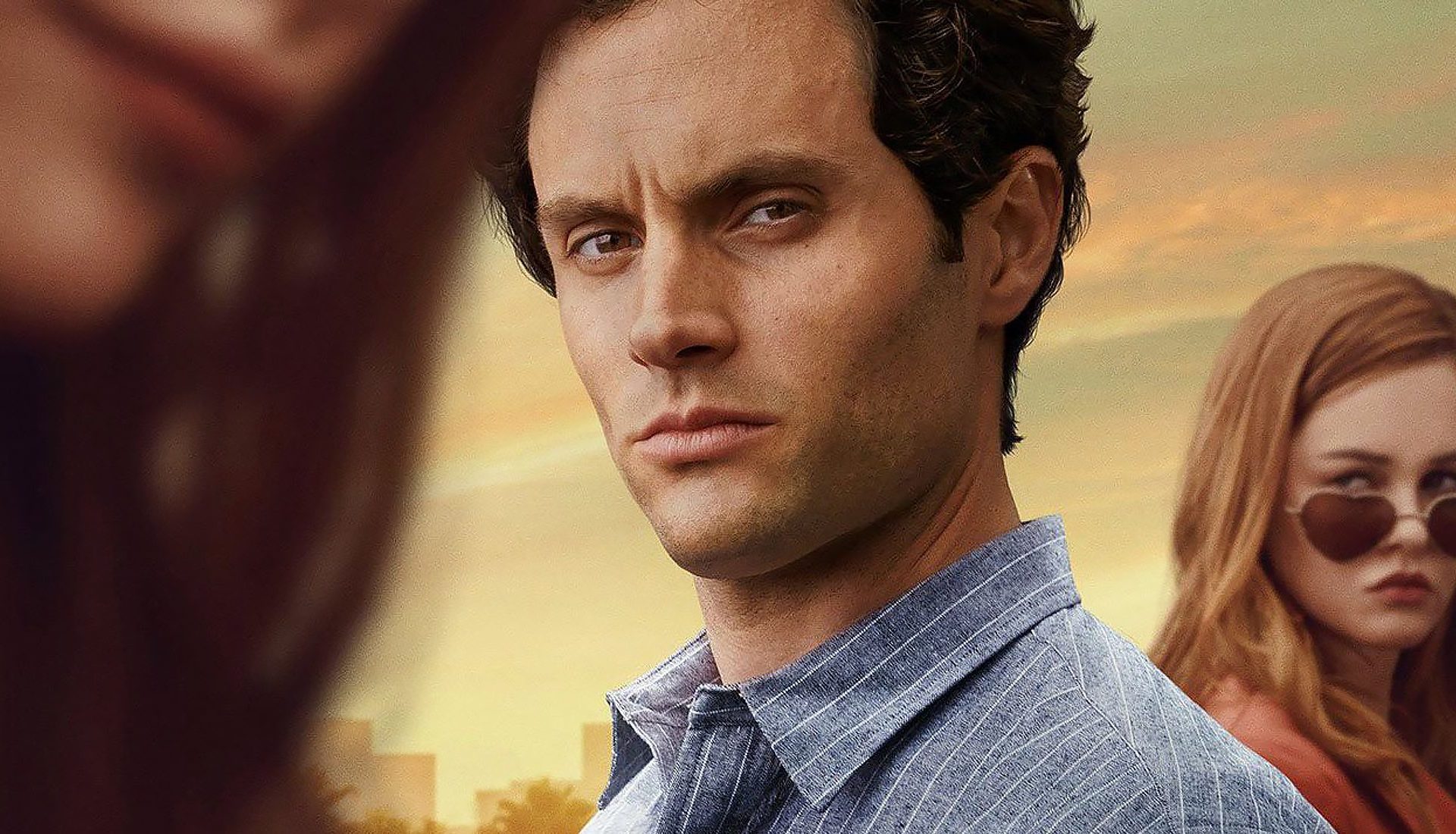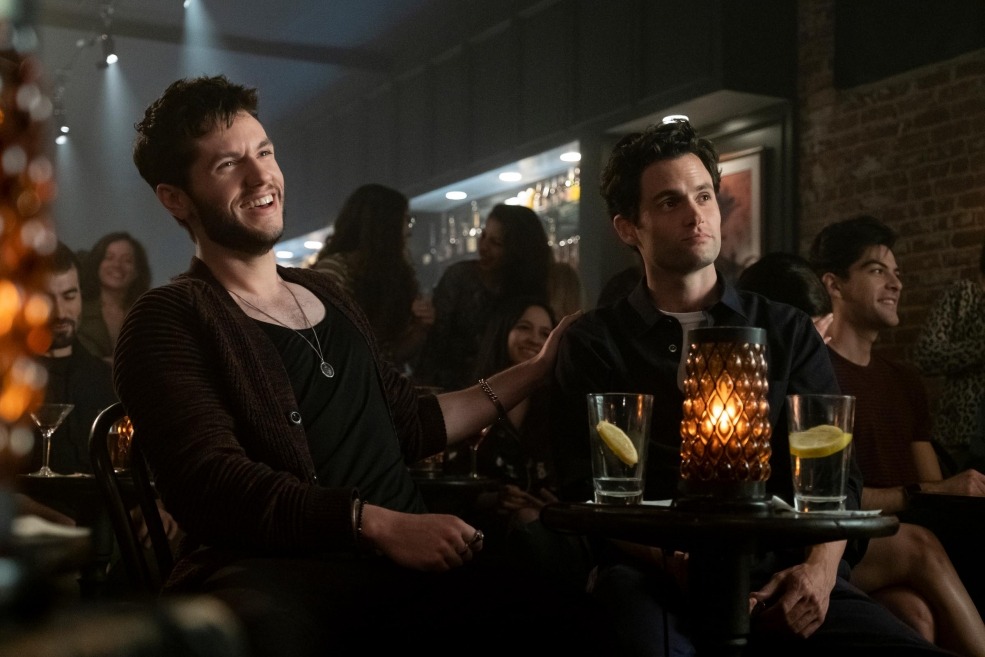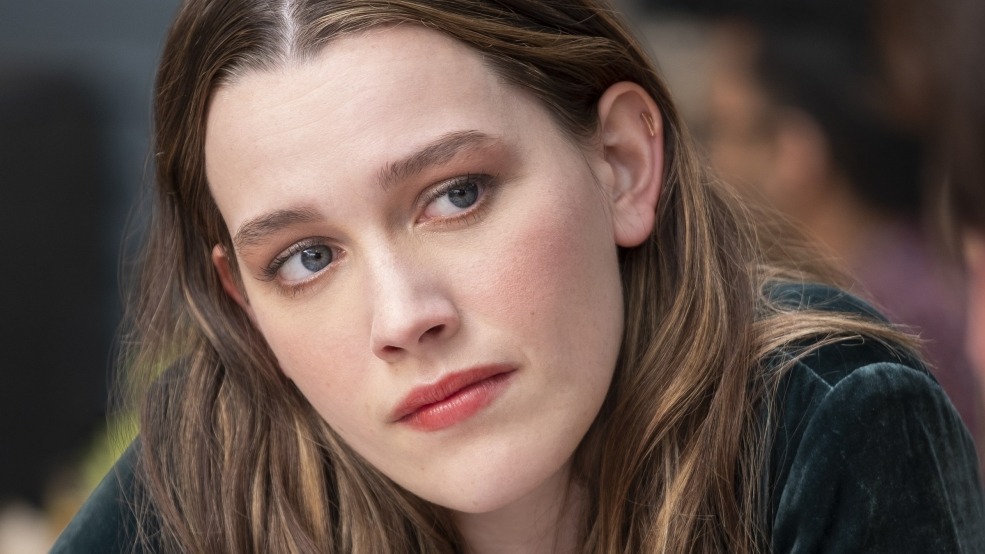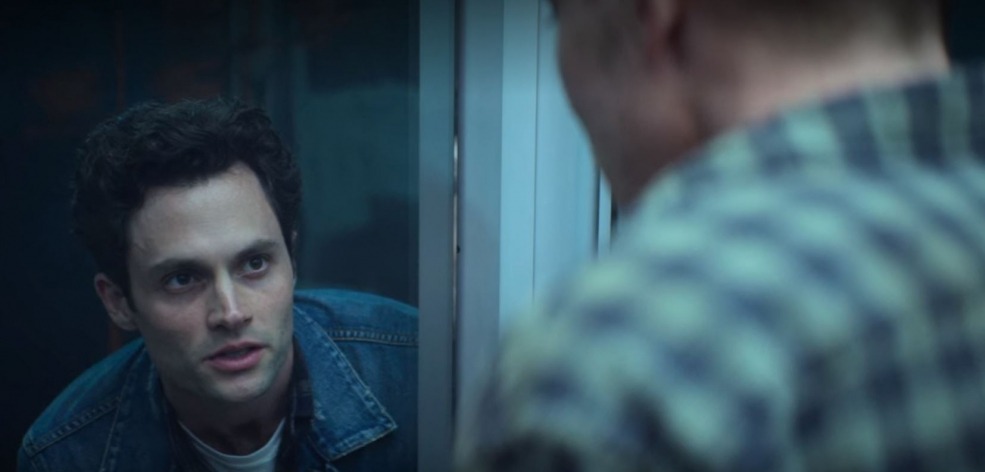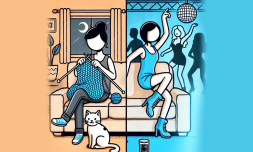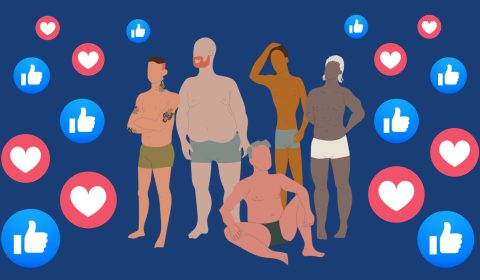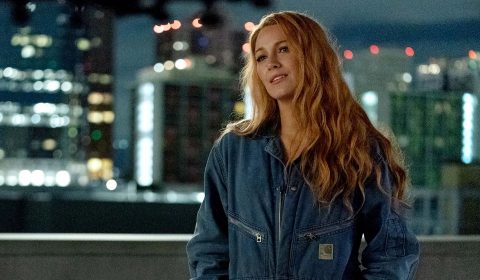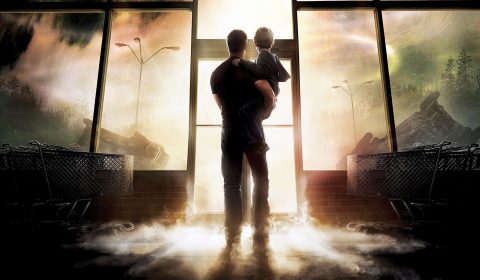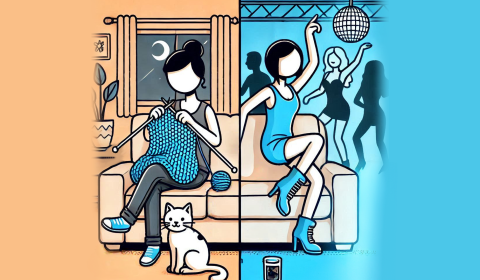The new installment of Netflix’s dark melodrama You dropped last week, and it’s the perfect gloomy antidote to all that holiday cheer.
Warning: spoilers ahead.
Amidst the concluding festivities of 2019, Netflix has gifted us with another hit of its highly addictive series, You. The violent thriller – which proved an instant success following its 2018 debut – has upped the ante this time around, bringing a new wave of darkness to our screens.
An adaptation of Caroline Kepnes’ best-selling novel of the same name, Season 1 introduced us to Joe Goldberg (Penn Badgley), a charming bookstore manager with a very, very evil side. Over ten episodes we watched in horror as Joe’s character quickly developed from word-nerd to serial killer, all in the name of love.
Long-story-short: conventionally beautiful aspiring writer Guinevere Beck (Elizabeth Lail) wanders into Joe’s store. He becomes immediately fixated on her, convinced that she’s his soulmate and proceeds to stalk her on the internet and in person, eventually stealing her phone to keep tabs on her and manipulate her into loving him.
Plunged into obsession, Joe goes to extreme measures to ensure he has Beck all to himself, eventually murdering her on-off boyfriend Benji and best friend Peach in calculated and brutal ways. What’s most concerning is Joe’s complete denial that he’s the bad guy throughout, an insight into just how easily some misogynists are able to conceal their beliefs. Beck’s demise is inevitable from the get-go and in a shocking but somewhat predictable twist she too winds up dead, her murder and the events leading up to it blamed entirely on her therapist, Dr Nicky.

Season 1 made for an exhilarating binge-watch, a bleak commentary on how popular culture has desensitised our reaction to crime and trivialised stalker tendencies. It showed us the dangers of social media, shone a light on quite how exposed we often leave ourselves, and confirmed our distorted view of romance in the 21st century. But it wasn’t enough to repel the masses, as audiences flooded to Twitter post-binge, begging for more.
Well, Netflix heard their prayers and You is back. And if you’re thinking that things couldn’t possibly get more messed up than what I’ve just outlined, oh, how wrong you are.
Season 2 takes us across the country to Los Angeles, relocating Joe’s intense affections onto the ironically named ‘Love’ – a new, unsuspecting woman executed flawlessly by Victoria Pedretti from The Haunting of Hill House.
Joe, now identifying as Will Bettelheim, is attempting to escape his demons, several corpses, and the return of ex-girlfriend Candace (Amber Childers) whom he was convinced he’d killed pre-Beck and who’s hellbent on making him pay for what he did (or tried to do) to her.
The dramatic change in setting is a fresh – might I say inspired – approach to the series’ grim material, Los Angeles being a cheery contrast to the grey, concrete streets of New York that fittingly hosted Joe’s gruesome actions in Season 1. Boasting a great deal more sunshine and welcoming personalities, LA’s warmth clashes significantly with Joe’s escalating darkness, as does the city’s artifice which he actively loathes.

You intelligently uses LA to its advantage, injecting a mild critique of celebrity and hippie culture into Joe’s story that brings an element of satire to his dark deeds. Perhaps the most prevalent of these critiques is the nod towards Hollywood’s #MeToo movement and the message it’s been striving to get across since its initiation in 2017.
In yet another one of Joe’s attempts to make himself feel better about his murderous tendencies, he takes on the (rather unnecessary) burden of caring for his neighbours Delilah (Carmela Zumbado) and her younger sister Ellie (Jenna Ortega). This is a direct parallel to his involvement with Paco in Season 1, a nine-year-old boy Joe ‘saves’ from an abusive household but instead pushes further towards violence by exposing Paco to his darkness.
As Season 2 progresses, we learn that Delilah was date raped as a minor by famous comedian ‘Henderson’ (Chris D’Elia) – with absolutely no repercussions. It turns out that she is one of many, and that Henderson has no intention of stopping, moving on to Ellie whom he seduces with the promise of helping her get by in the industry. Sound familiar? These instances of sexual misconduct – Henderson’s blatant use of fame and influence to prey on underage women, drugging them, undressing them, and photographing them – are all too real in Hollywood, and Netflix is doing the right thing in refusing to shy away from portraying them.
Joe, of course, steps in to ‘save’ Ellie before anything can happen, killing Henderson and once again distorting our perceptions of who the bad guy actually is. We can’t help but momentarily view him as the hero for bringing an end to Henderson’s predatory behaviour, but ultimately, Joe’s entire sense of self hinges on being a ‘good guy’ and committing manslaughter is definitely not something a ‘good guy’ would do.
In Season 1, Joe’s presentation as an objectively bad person was pretty darn clear. However, for a reason that’s beyond me, the show also decided to portray him as an ostensibly perfect, conventionally attractive protagonist, one that we couldn’t help rooting for. He was compelling, but his magnetism always turned violent. Meanwhile, Beck was undeniably bland, and her never-ending neediness, alongside self-proclaimed ‘daddy issues,’ was more than enough to make her the perfect target for Joe’s projected fantasies.
Thankfully, Season 2 turns this on its head, teaching Joe a lesson and exposing him for the sadistic psychopath he truly is. Personally, I wouldn’t be all that surprised if this sudden change had something to do with concerns regarding the plethora of ‘thirsty’ responses online (such as those calling Joe a #daddy). It’s definitely a relief to see directors striving to bring out Joe’s worst qualities to put people off. Seriously, this obsession with homicidal heartthrobs has to stop.

If Joe’s killing spree in Season 1 didn’t turn your stomach, the events that take place in Season 2 sure will. Aside from the graphic scene in which we witness his finger get hacked off by an angry debt-collector, the majority of the violence is inflicted by Joe himself.
From start to finish we’re taken on a whirlwind journey of a toxic, homicidal creep’s experiences – all from the inner-workings of his mind. Joe paints a picture saturated with cynicism, egotism, and disdain, and Badgley’s performance does everything to ensure we feel as uncomfortable as possible seeing the world through a psychopath’s eyes.









